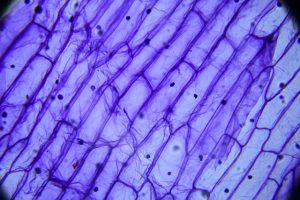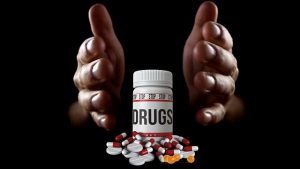Recovering Together: Gloucester County’s Sober Living Journey
Gloucester County, NJ, offers a network of sober living homes that provide structured support and community for individuals transitioning from intensive addiction treatment. These residences, which are part of a continuum of care, offer comprehensive rec…….

Gloucester County, NJ, offers a network of sober living homes that provide structured support and community for individuals transitioning from intensive addiction treatment. These residences, which are part of a continuum of care, offer comprehensive recovery experiences with on-site addiction services, including outpatient care, counseling, therapy, and integration with mutual aid groups like AA or NA. Residents adhere to a code of conduct for accountability, engage in drug testing, and attend community meetings to reinforce their sober lifestyle. These homes emphasize self-sufficiency through household responsibilities and income contributions, while also collaborating with local resources to deliver tailored support throughout the recovery journey. The environment is designed to foster discipline, responsibility, and healthy habits, with a strong focus on long-term sobriety and reintegration into the community.
Gloucester County’s sober living homes offer a spectrum of recovery pathways for individuals seeking lasting sobriety. These residences provide structured environments that facilitate the transition from treatment centers to independent living, emphasizing community support and robust resources tailored to residents’ needs. This article delves into the multifaceted nature of these homes, exploring their pivotal role in fostering healthier lifestyles, the benefits of communal living for those in recovery, and the essential features that make them conducive to sustained well-being. We will also examine the supportive networks and aftercare strategies available, all aimed at navigating the journey toward long-term sobriety. Join us as we explore how these homes serve as cornerstones for a thriving recovery community within Gloucester County.
- Overview of Gloucester County Sober Living Homes
- Benefits of Structured Living Environments for Recovery
- Essential Features and Amenities of Sober Living Homes
- Community Support and Resources for Residents
- Pathways to Long-Term Sobriety and Aftercare Strategies
Overview of Gloucester County Sober Living Homes

Gloucester County, located in the state of New Jersey, offers a network of sober living homes that serve as pivotal transitional environments for individuals recovering from substance use disorders. These homes provide structured, supportive residences where recovery is the central focus, fostering a sense of community and belonging among residents who are committed to maintaining sobriety. The sober living homes in Gloucester County are designed to offer a safe and stable living situation that complements ongoing addiction treatment programs, including outpatient services, counseling, and therapy. Residents are expected to adhere to a code of conduct that promotes accountability and personal responsibility, while also engaging in regular drug testing and community meetings to reinforce their commitment to sobriety. These homes are integral to the continuum of care for those who have completed more intensive treatment programs and are looking to reintegrate into society with the tools and support necessary to sustain a substance-free lifestyle. The Gloucester County sober living homes emphasize self-sufficiency through responsibilities such as household chores, contributing to income sources, and participating in mutual aid groups like Alcoholics Anonymous or Narcotics Anonymous, thereby preparing residents for eventual independent living. The community’s collaboration with various recovery resources ensures that individuals receive comprehensive support tailored to their unique needs and challenges during their journey of recovery.
Benefits of Structured Living Environments for Recovery

Recovery from substance use disorder often requires a supportive environment that offers structure, accountability, and a sense of community. Structured living environments within Gloucester County’s sober living homes provide individuals in recovery with a framework conducive to maintaining sobriety. These homes offer a routine that includes scheduled daily activities, group responsibilities, and peer support, which can help residents develop healthy habits and time management skills. The structure fosters discipline and responsibility, both of which are critical for long-term recovery. Moreover, these environments encourage social integration through communal living, which can alleviate feelings of isolation often experienced during early recovery. Residents learn to navigate daily life without relying on substances, gaining confidence in their ability to cope with stressors and triggers. The peer support within sober living homes allows for shared experiences and mutual encouragement, creating a network of understanding and motivation. This communal support can significantly reduce the likelihood of relapse and aid individuals in their journey towards sustained sobriety.
Essential Features and Amenities of Sober Living Homes

Gloucester County’s sober living homes offer structured environments that are conducive to long-term recovery from substance use disorders. These residences are designed with a set of features and amenities that support individuals as they transition from treatment centers to independent living. Key aspects include a secure and supportive community atmosphere, where residents can feel safe and empowered in their sobriety. The homes typically offer private or shared bedrooms with common areas for social interaction and communal activities. Structured schedules promote routine and responsibility, which are essential components of sustainable recovery. Many sober living homes provide on-site management and staff support to monitor progress and address any issues that arise. Additionally, they often include access to therapeutic services such as counseling or group therapy sessions, which complement ongoing outpatient treatment programs. Facilities may also offer educational and vocational resources to help residents build new skills and pathways for a fulfilling life in recovery. Healthy meal plans, exercise facilities, and recreational activities are additional features that support both physical and mental well-being, rounding out the comprehensive approach of these homes in fostering a life free from substance abuse.
Community Support and Resources for Residents

Gloucester County’s network of sober living homes is deeply integrated with the local community, providing residents with robust support and a spectrum of resources to aid their recovery journey. These homes are not isolated sanctuaries but are designed to be part of the larger community fabric, ensuring that individuals in recovery can engage meaningfully with their neighborhoods. The community’s involvement is pivotal; it offers a supportive environment where residents can find camaraderie and shared experiences with others who understand the challenges of sobriety. Local support groups, such as Alcoholics Anonymous (AA) and Narcotics Anonymous (NA), often hold meetings within or near these homes, facilitating easy access to peer support and mutual aid.
Beyond peer support, Gloucester County’s commitment to recovery is reflected in the various resources available to sober living home residents. These include outpatient treatment programs, counseling services, and educational workshops that address relapse prevention, life skills training, and employment assistance. The county also boasts recreational facilities and community centers where individuals can find healthy activities to enrich their lives and foster connections with peers. Additionally, local healthcare providers often collaborate with these homes to offer medical care tailored to the needs of those in recovery, ensuring a holistic approach to health and well-being. This comprehensive support system within the community plays a crucial role in sustaining long-term recovery for residents of sober living homes in Gloucester County.
Pathways to Long-Term Sobriety and Aftercare Strategies

Gloucester County’s sober living homes offer structured environments that facilitate pathways to long-term sobriety for individuals recovering from substance use disorders. These residences provide a supportive community where recovery is the primary focus. They emphasize accountability, personal responsibility, and mutual support among residents, fostering an atmosphere conducive to healing. Residents are encouraged to engage in therapeutic activities, attend regular 12-step meetings, and participate in vocational or educational pursuits that contribute to their overall well-being and self-sufficiency.
Aftercare strategies within these sober living homes are tailored to each individual’s needs, ensuring a continuum of care that complements any existing treatment plans. These strategies often include ongoing counseling, relapse prevention education, and the development of coping mechanisms to handle triggers and stressors. The homes also help residents establish healthy routines and life skills that are essential for maintaining sobriety outside the structured environment. By promoting self-care, community involvement, and a commitment to lifelong recovery, these sober living homes serve as a steppingstone to a sustainable, substance-free lifestyle.
Gloucester County’s network of sober living homes offers a structured, supportive environment conducive to sustained recovery. These residences provide essential features and amenities that facilitate healing and growth for individuals transitioning from rehabilitation centers to independent living. The community’s robust support system, coupled with an array of resources, ensures residents receive ongoing assistance tailored to their unique journeys. As residents engage in activities and programs designed to promote long-term sobriety, they also contribute to a culture of mutual support, fostering a strong community ethos. Ultimately, the pathways to recovery in Gloucester County are multifaceted, adaptive, and committed to the well-being of those striving for a sober lifestyle.









